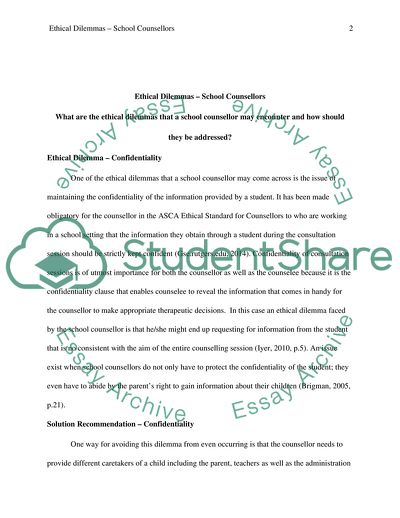Cite this document
(Ethical Dilemmas: School Counsellors Report Example | Topics and Well Written Essays - 1250 words, n.d.)
Ethical Dilemmas: School Counsellors Report Example | Topics and Well Written Essays - 1250 words. https://studentshare.org/education/1805847-what-are-the-ethical-dilemmas-that-a-school-counsellor-may-encounter-and-how-should-they-be-addressed
Ethical Dilemmas: School Counsellors Report Example | Topics and Well Written Essays - 1250 words. https://studentshare.org/education/1805847-what-are-the-ethical-dilemmas-that-a-school-counsellor-may-encounter-and-how-should-they-be-addressed
(Ethical Dilemmas: School Counsellors Report Example | Topics and Well Written Essays - 1250 Words)
Ethical Dilemmas: School Counsellors Report Example | Topics and Well Written Essays - 1250 Words. https://studentshare.org/education/1805847-what-are-the-ethical-dilemmas-that-a-school-counsellor-may-encounter-and-how-should-they-be-addressed.
Ethical Dilemmas: School Counsellors Report Example | Topics and Well Written Essays - 1250 Words. https://studentshare.org/education/1805847-what-are-the-ethical-dilemmas-that-a-school-counsellor-may-encounter-and-how-should-they-be-addressed.
“Ethical Dilemmas: School Counsellors Report Example | Topics and Well Written Essays - 1250 Words”. https://studentshare.org/education/1805847-what-are-the-ethical-dilemmas-that-a-school-counsellor-may-encounter-and-how-should-they-be-addressed.


